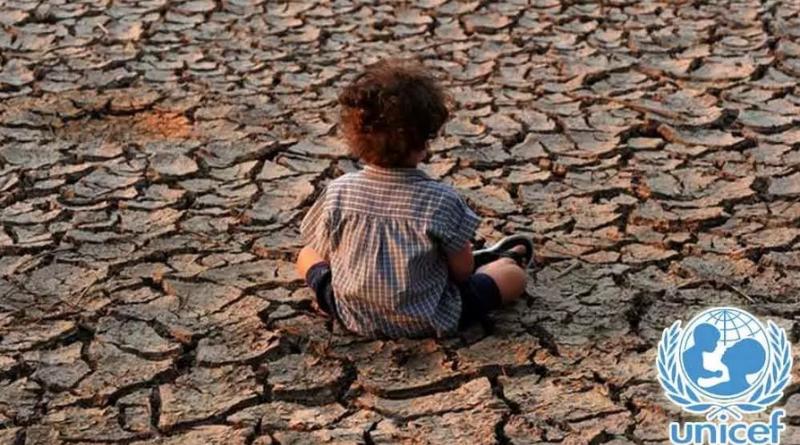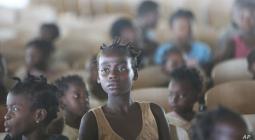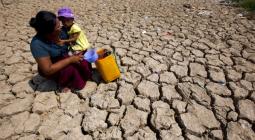UNICEF: The climate crisis is a child rights crisis.

The climate crisis is threatening to roll back progress on child rights without sufficient urgent investment in solutions that benefit the most vulnerable children, UNICEF said today as the UN Climate Change Conference COP25 enters its second week.
“From hurricanes to droughts to floods to wildfires, the consequences of the climate crisis are all around us, affecting children the most and threatening their health, education, protection and very survival,” said Gautam Narasimhan, UNICEF Senior Adviser on Climate Change, Energy and Environment. “Children are essential actors in responding to the climate crisis. We owe it to them to put all our efforts behind solutions we know can make a difference, such as reducing vulnerability to disasters, improving the management of water resources, and ensuring that economic development does not happen at the expense of environmental sustainability.”
Some ways the climate crisis is affecting children, and how they can be addressed, include:
- Around 503 million children now live in areas at extremely high risk of floods due to extreme weather events such as cyclones, hurricanes and storms, as well as rising sea levels. Investments in disaster-risk reduction, such as early warning systems can help prepare communities to protect children during extreme weather events.
- The number of children displaced by extreme weather events in the Caribbean has increased six-fold in the past five years. From 2014 to 2018, 761,000 children were internally displaced, up from 175,000 children displaced between 2009 and 2013. Strategies that limit forced displacement and shorten rehabilitation time so that families can return home are critical.
- Around 160 million children live in areas experiencing high levels of drought – and by 2040, 1 in 4 children will live in areas of extreme water stress. Technologies to effectively manage water exist, but greater investment to scale up techniques can help better locate, extract and sustainably manage water.
- Weather-related disasters increase the risk for girls to drop out of school and be forced into marriages, trafficking, sexual exploitation and abuse. Educating girls increases their awareness of the climate crisis and builds their resilience and capacity to cope with these impacts.
- Nearly 90 per cent of the burden of disease attributable to climate change is borne by children under the age of five. Changes in temperature, precipitation and humidity have a direct effect on the reproduction and survival of the mosquitoes that transmit deadly diseases. However, improved prediction capabilities complimented with support to health workers and systems on the ground, is enabling us to map disease prevalence with greater accuracy and predict – and disrupt – transition mechanisms and pathways.
- Approximately 300 million children are breathing toxic air – 17 million of them are under 1-year-old. These children live in areas where PM2.5 levels exceed six times the international limits set by the World Health Organisation, which has an immediate and long-term detrimental effect on their health, and brain function and development. Cleaner, renewable sources of energy, affordable access to public transport, more green spaces in urban areas, and better waste management that prevents the open burning of harmful chemicals can help improve the health of millions.
- Toxic air – caused largely by carbon emissions and other greenhouse gases – has grave consequences for young children, contributing to the deaths of around 600,000 children under-five every year due to pneumonia and other respiratory problems. Despite knowing its dangers many places with high-levels of pollution do not have ground-level monitoring systems to measure the problem regularly. Only 6 per cent of children in Africa, for example, live within 50km of a ground-level monitoring station.
###
About UNICEF
UNICEF works in some of the world’s toughest places, to reach the world’s most disadvantaged children. Across more than 190 countries and territories, we work for every child, everywhere, to build a better world for everyone. For more information about UNICEF and its work for children, visit www.unicef.org
Follow UNICEF on Twitter and Facebook
For more information, please contact:
Najwa Mekki, UNICEF COP25 delegation, + 1 917 209 1804, nmekki@unicef.org
Georgina Thompson, UNICEF New York, + 1 917 238 1559, gthompson@unicef.org
MADRID
COP25
8TH DECEMBER 2019
Ioannis Tsipouridis




